At the beginning of the year, much ink was spilled speculating over why the French were so sceptical about the Covid vaccine, after a poll showed only 40 percent planned on getting it. As of October 21st, 90 percent of adults in France had received at least one dose.
Now surveys are back in the news after several polls showed Eric Zemmour, a far-right pundit who has no political experience and is not even officially a candidate yet, taking second place in the French presidential race.
🔴 Un nouveau sondage donne Zemmour au second tour:
🔹 24% pour Macron
🔸 16% pour Zemmour
🔹 15% pour Le Pen
🔸 13% pour Bertrand
🔹 09% pour Jadothttps://t.co/cDnefoqbFN pic.twitter.com/pOIy0j4kcr— BFMTV (@BFMTV) October 22, 2021
But should French polls be taken with a pinch of salt?
A nation of pessimists
Studies regularly show the French to be more pessimistic than their neighbours, with 75 percent recently declaring that they believe their country to be in decline.
British data analyst Tom Forth has previously described this phenomenon as “performative miserablism” – a tendency to choose the most negative option when asked to provide an opinion. The same trend can be seen in comparative surveys of happiness among European countries, which France generally comes out at the bottom of.
Nobody will be more familiar with this negativity than French politicians. The 40 percent approval rating currently given to President Macron might sound pretty low, but is an overwhelming vote of confidence when compared to his predecessors at the same point in their mandate – 31 percent for Nicolas Sarkozy, and just 14 percent for François Hollande.
“The popularity of the President is much weaker than in the United States, or for the German Chancellor or British Prime Minister,” Bruno Jeanbart, vice-president of polling organisation OpinionWay told The Local. “The fact we are more pessimistic and more negative about the future means we judge politicians more severely.”
But there is another equally important factor, according to Jeanbart: “We have a false system of majority rule.”
Although Emmanuel Macron scored 66 percent in the second round of voting in 2017, only 24 percent of people voted for him in the first round. The highest first round score in the past thirty years went to Sarkozy in 2017 – 31 percent. Even Donald Trump, who failed to win the popular vote in 2016, was chosen by 46 percent of the electorate.
The low approval ratings we see for French presidents may simply reflect the fact that most people didn’t vote for them in the first place.
Complaining
But there is also a wider phenomenon at play, which is linked to the famous French grogne (discontent). The French in general distrust their political leaders and institutions.
And not only them. “It’s also true for trade unions or the media, who suffer a lot from this mistrust,” said Hugo Touzet, a doctoral student at Sorbonne Université researching the sociology of public opinion.
READ ALSO ‘In France we don’t make small-talk, we complain instead’
For Touzet, this dissatisfaction stems partly from France’s presidential system, where a great deal of power is concentrated with the head of state.
“During the Macron presidency it’s particularly true, people have the impression that all the decisions are taken by the President, not the ministers, especially not MPs, and even less other elected officials.” He says this leaves people feeling like they have little say in how the country is run.
It wasn’t always like this. As the Ifop graph below shows, Charles de Gaulle had a 64 percent approval rating six months ahead of the 1965 election.
📊🇫🇷 La cote de popularité Ifop des présidents français à six mois du premier tour
Si E. #Macron est bien placé par rapport à ses plus récents prédécesseurs (Sarkozy/Hollande), il est en dessous de la popularité de VGE en 1980 juste avant sa défaite. pic.twitter.com/v3s3nGImmD
— Paul Cébille (@Ellibec) October 20, 2021
Touzet puts this down to the fact people are more informed than they once were, and have greater access to varied sources of information allowing them to question what they are being told.
We don’t have to wait for an election to come around to see the effects, either. This could go some way to explaining the initial resistance to vaccines in France. According to Jeanbart, vaccine hesitancy was “very clearly linked” to the general pessimism and mistrust of institutions, rather than reflecting a distrust of the vaccines themselves.
“Very quickly, the vaccine appeared to be politicised,” he said. “People soon got the impression that the vaccine was Macron, and to oppose the vaccine was to oppose Macron.”
Timing
Much has changed since that first vaccine poll, from the introduction of the health pass to push people to get vaccinated if they want to continue going to restaurants or to the cinema, to increasing evidence about the effectiveness of vaccines.
It should also be pointed out that people were not telling pollsters that they definitely would not be vaccinated, just that they weren’t sure whether they would or not. Many people wanted to wait and see how the rollout went – and having seen that there were few problems worldwide they went ahead and got vaccinated, in many cases before the introduction of the health pass.
That is why those early polls should not be considered inaccurate, Touzet says. “Polls take a photograph of public opinion at a specific moment.”
So how much credence should we give polls which predict Zemmour making it to the second round of the presidential election? Not a lot, says Alexandre Deze, a lecturer in political science at the University of Montpellier
“Six months before a presidential election, opinion polls provide correct estimates in one in eight cases,” Deze told The Local.
Indeed, polls from December 2016, four months before the 2017 presidential election, had François Fillon leading the race with 27 percent of the vote, and Emmanuel Macron far behind in third on 15 percent.
Some commentators have even warned the polls could become self-fulfilling prophecies, by painting Zemmour as a credible candidate, and one who has a chance of winning.
The task of projecting towards April is made even more difficult by the fact President Macron is yet to confirm whether he will stand for re-election, and the centre-right Republicans still have to choose their candidate.
Online v in-person
When discussing the difficulties of accurately predicting the results of French elections, one name is recurrent: Le Pen. When Jean-Marie Le Pen was leading the National Front (FN) party, the polls would generally underestimate the far-right vote.
During regional elections in June, we saw the reverse of 2002: Jean-Marie’s successor Marine Le Pen was predicted to do well, but didn’t end up taking control of a single region.
One reason for this could be a change in the way of conducting polls.
“When someone called you it was a bit difficult to say you were voting for Le Pen’s party, which was quite badly seen under Jean-Marie,” Touzet said. Data firms began “correcting” results to take this phenomenon into account.
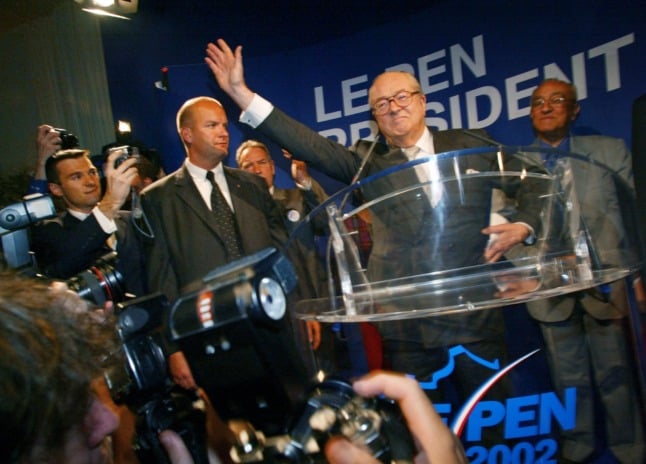
In recent years, organisations have started conducting polls online. Without the human intermediary, people are more likely to tell the truth.
Add to that Marine Le Pen’s dédiabolisation of the party now known as the National Rally (RN) – the process of improving its image – and there is less need for pollsters to inflate the results.
Even so, polling organisations continue to rely on intuition to estimate the far-right vote, according to Deze. “This operation continues to be done in-house, and so in part remains opaque.”
And the move to online polling might be having other effects
Jeanbart said: “The act of moving online allowed us to see that people held more radical opinions than we thought.
“Since things went online, a large majority of French people say they agree there are too many immigrants in France, and we have little doubt that this is the more accurate result.”
Engaged voters
Experienced watchers of political polls also say that there are certain patterns that repeat.
According to Touzet, it’s common for Le Pen to do well in early polls, only to see her score fall slightly over the course of the campaign.
“She has a very mobilised electorate of people who always vote for her,” he said.
Those who are likely to vote for far-left candidate Jean-Luc Mélenchon, by contrast, “are characterised by a more distant relationship to institutional politics. That means for example they’ll take an interest in the election at a later date, once we’re truly in the heart of the campaign.”
The same analysis can be applied to other candidates. “If you take Socialist candidate Anne Hidalgo’s electorate, for example, which is more highly qualified, and more privileged, it’s an electorate that will be interested in elections earlier, so will already be represented in voting intention polls.”
Data problems
French pollsters have another problem, which is that they don’t have access to the electoral roll.
Pollsters in other countries tend to use the register of elected voters in order to select representative samples for surveys, but in France this document is confidential and only the national statistics body Insee is allowed access.
French polling organisations instead often use quotas to make sure they have a sample that’s representative of the French population in terms of factors including age, sex and socioeconomic status.
Does this make a difference?
While quotas are “less good in theory”, in practice the two methods produce similar results, Jeanbart said.
Deze is more critical. “The quality of the samples, which are all put together online and made up of paid volunteers, no longer offer sufficient guarantees of producing reliable results.”
The number of polls published in France has also exploded in recent decades. “Around 1,000 opinion polls are published every year, around 20 percent of the estimated total, as the rest of the studies remain confidential. There’s more or less only the United States who can surpass us from this point of view,” Deze added.
There were 560 just on the subject of the 2017 presidential election ahead of the first round.
That’s a lot of polls. Too many, if you ask some. Ouest-France, France’s leading regional newspaper in terms of circulation, recently decided to stop commissioning polls altogether.
Ce recours systématique aux sondages pour éviter de se pencher sérieusement sur les programmes des candidats est dangereux pour la démocratie. C’est pourquoi le quotidien @OuestFrance ne réalisera aucun sondage avant l’élection présidentielle. https://t.co/4gpOPpomhq
— Arnaud Wajdzik (@awajdzik) October 23, 2021
“Considering this systematic reliance on polls as a way of avoiding seriously studying candidates’ programmes (or of getting around the absence of a programme) to be dangerous for democracy, Ouest-France will produce no opinion polls on the subject ahead of the election,” editor-in-chief François-Xavier Lefranc wrote.
“People don’t know how to read polls. We would be better off doing much more teaching around how to understand the methodology and the results,” Touzet said.
The sociologist recommends consulting the Commission des sondages website, which publishes detailed results of every opinion poll related to an election with information about the methodology, instead of relying on the press reports.

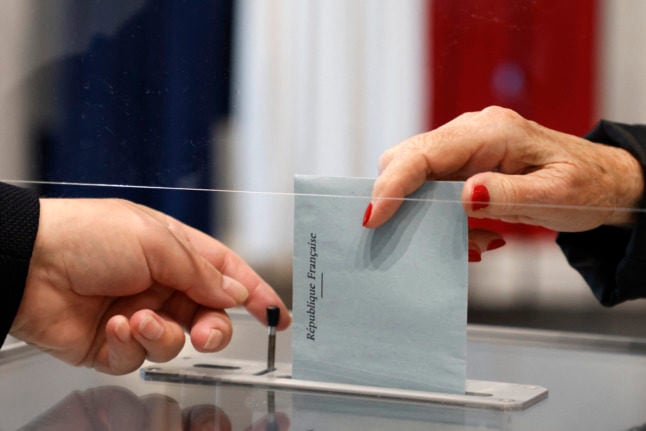
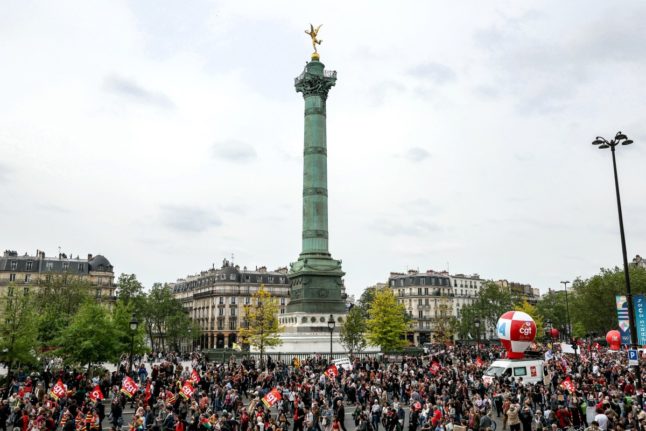
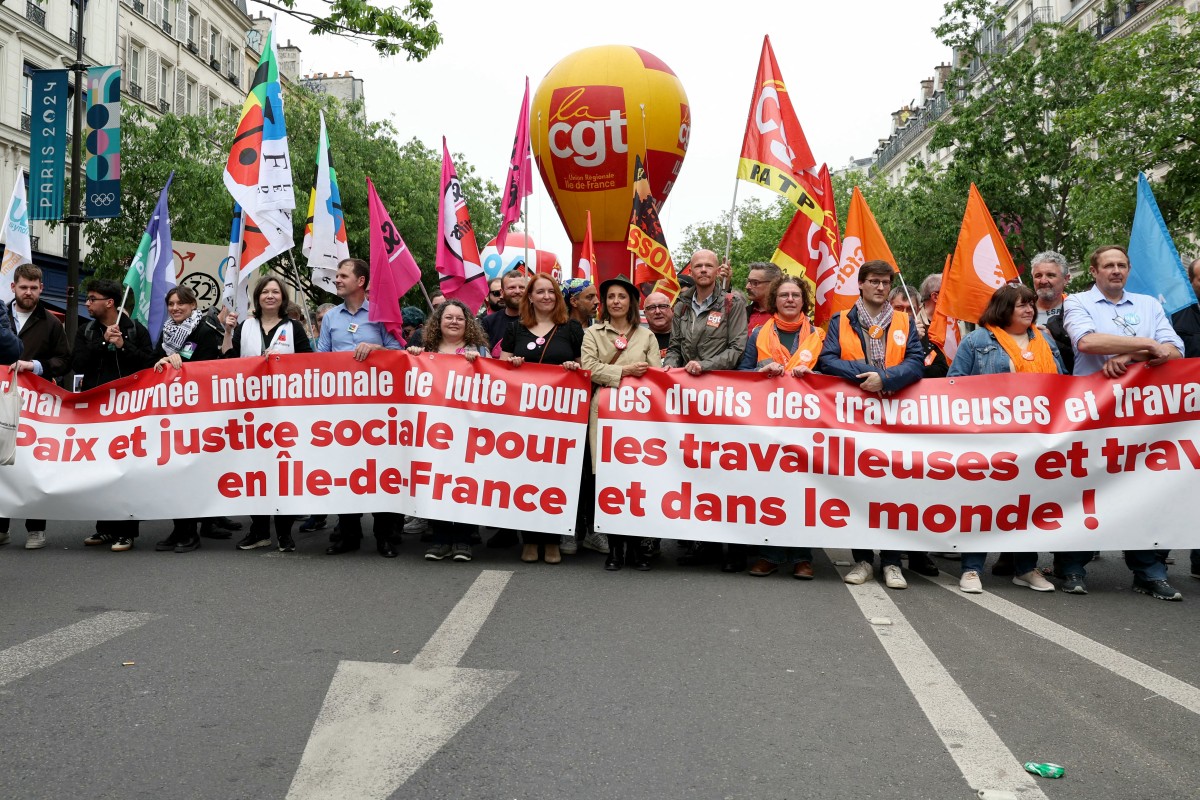
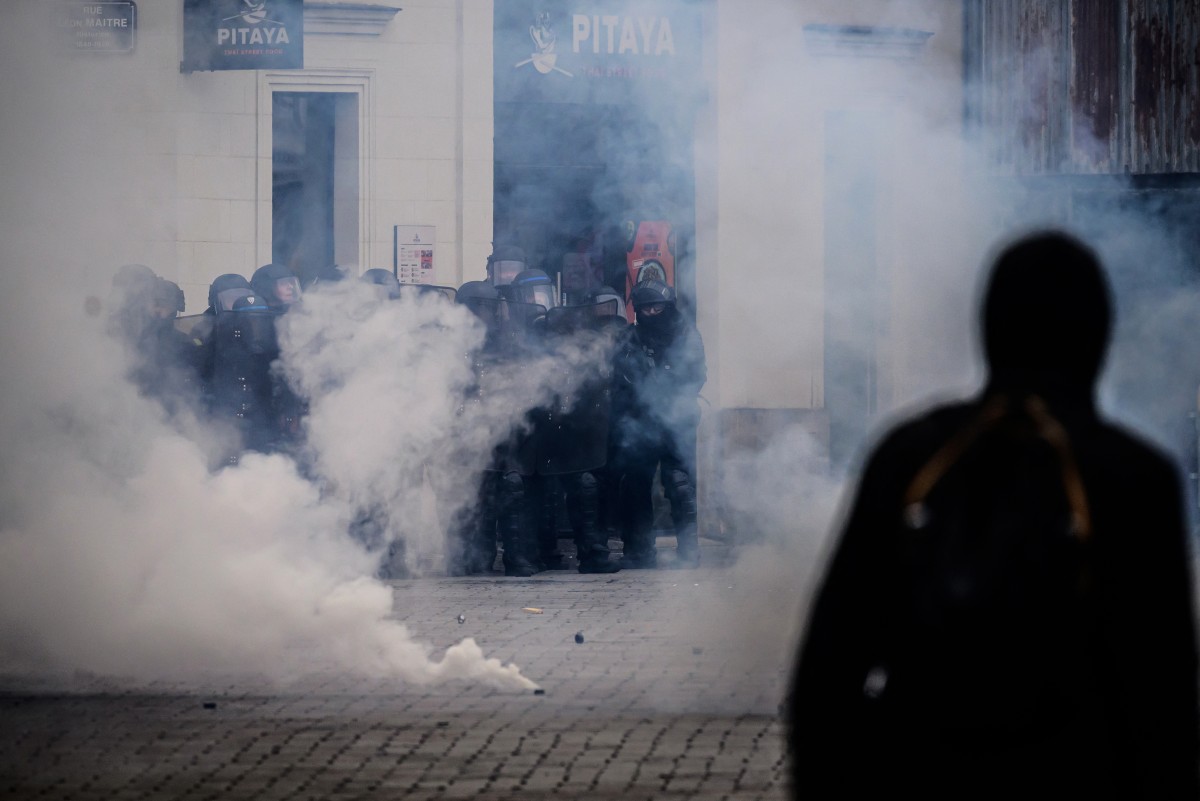
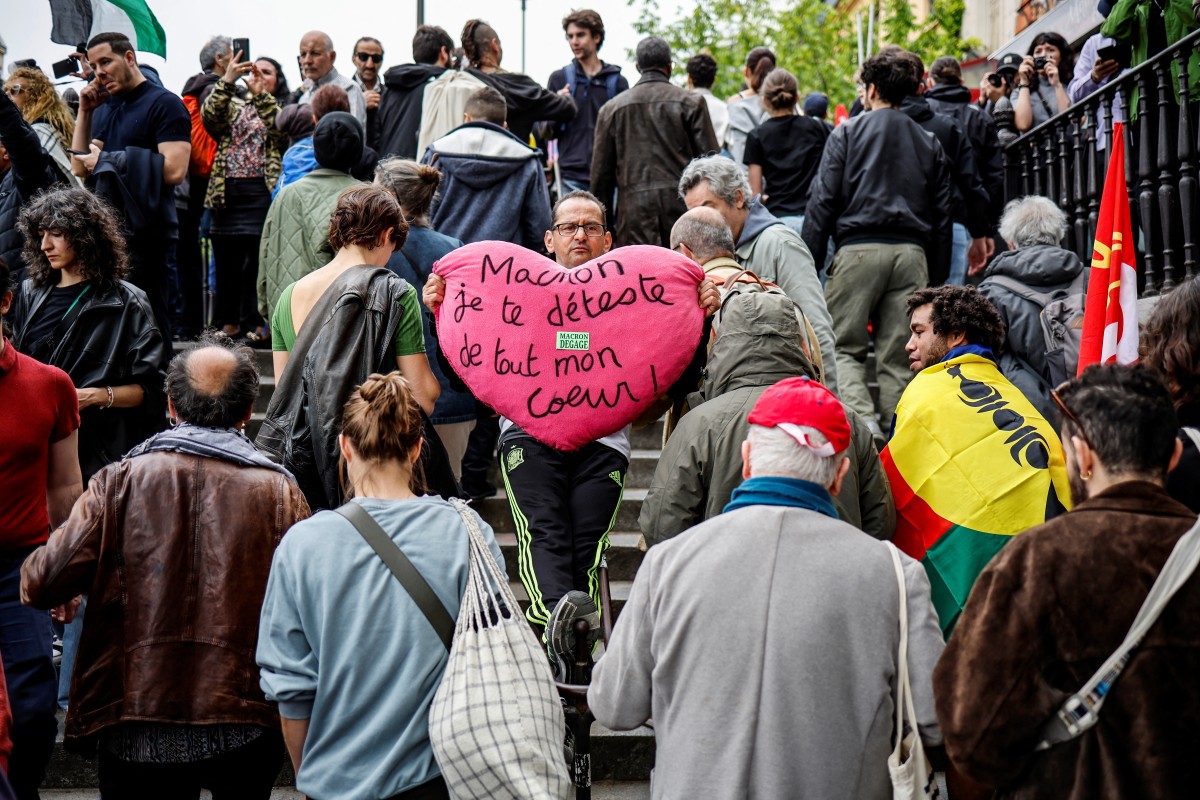

 Please whitelist us to continue reading.
Please whitelist us to continue reading.
How reliable are any polls? None of them. They have become a scourge especially around election time and are just an easy money making scheme for the people running them but the media love them because they are an easy way of filling empty space. This article proves the point.😉